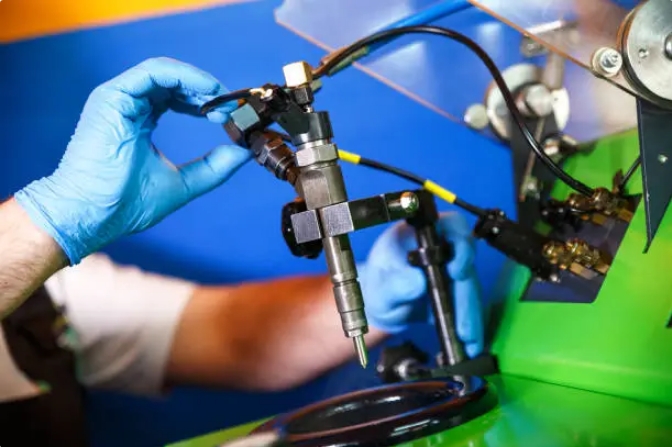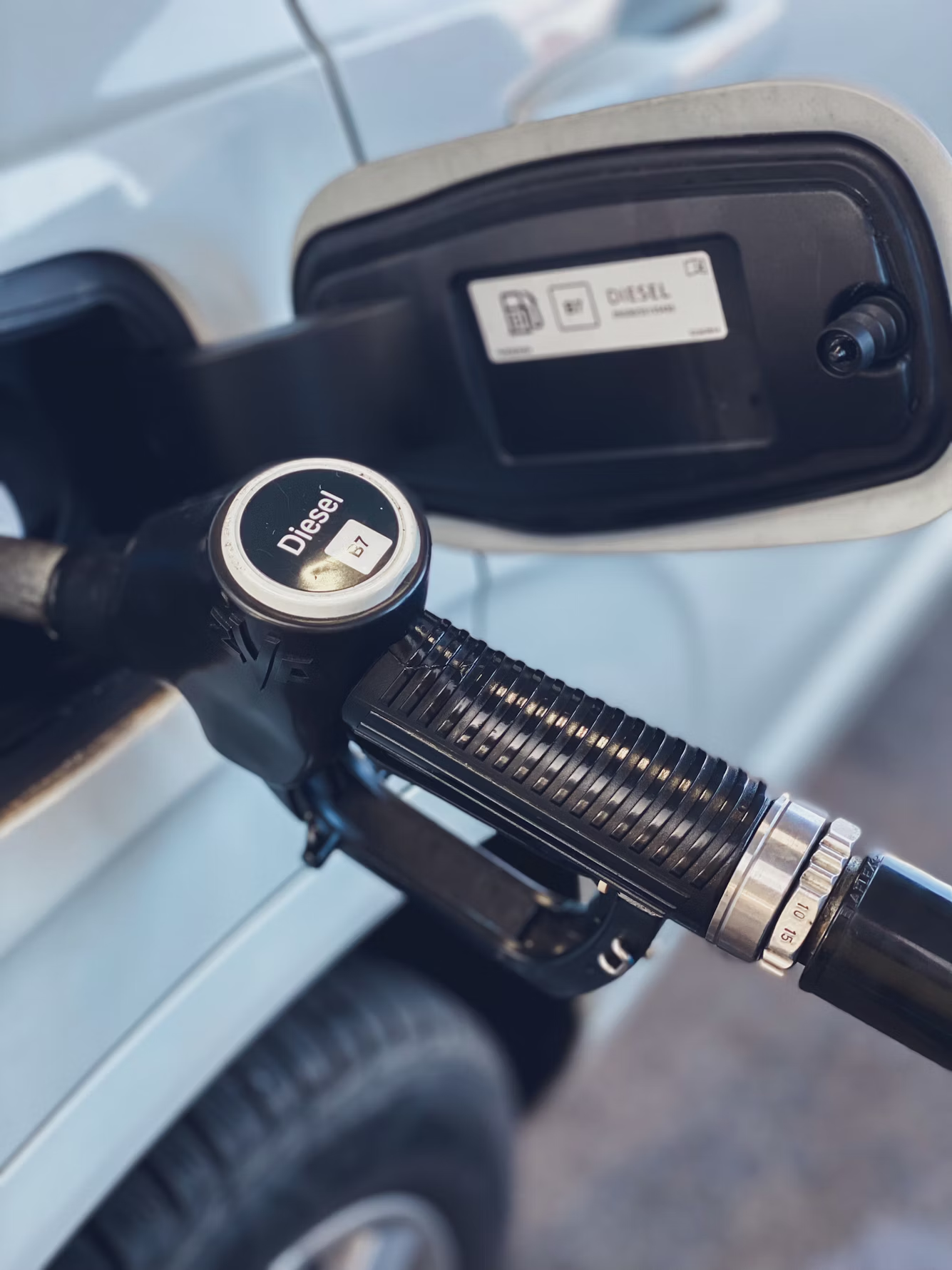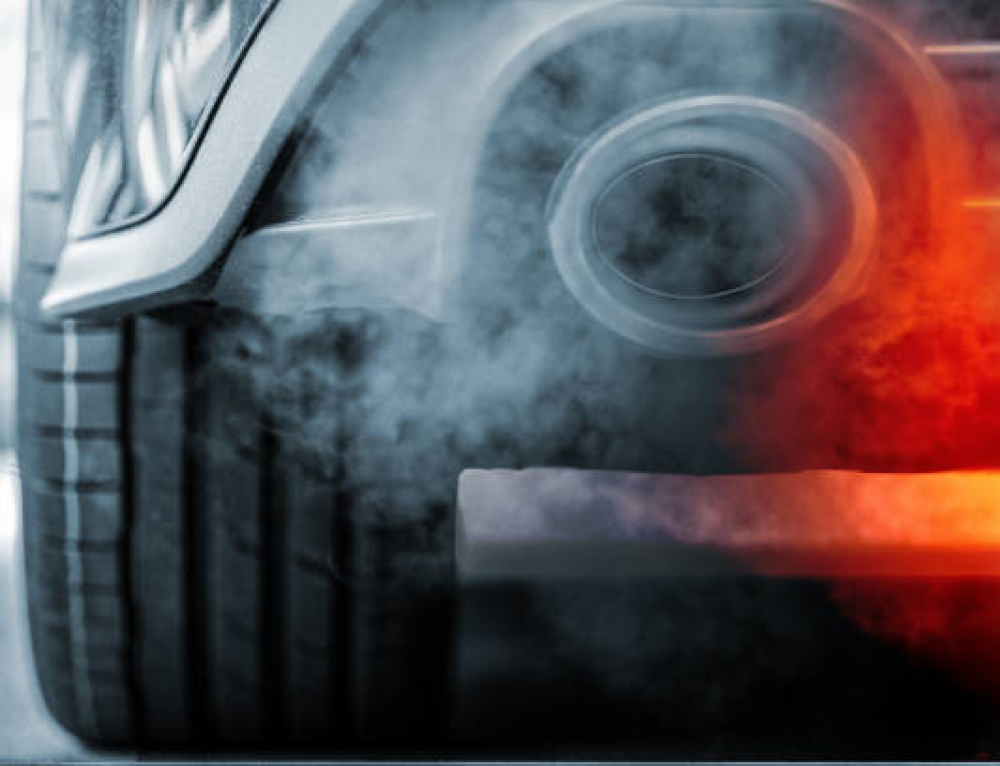When it comes to auto repair, not all engines are created equal. One of the most important distinctions drivers often overlook is the difference between diesel repair service and gasoline engine repairs.
Knowing how your engine type affects your repair needs can save you time and stress. This is important whether you are managing a work truck or a daily commuter car.
In this blog, we’ll explain the differences and why picking the right diesel repair service technician for your engine matters.
Let’s get started!
Key Highlights
- Diesel engines operate at higher compression. This means they produce more heat under load.
- Gasoline engines usually have shorter oil life. However, they use lighter oils that are easier and cheaper to replace.
Diesel vs. Gasoline Engines: A Quick Overview
Both diesel and gasoline engines run on internal combustion. However, they do so in different ways. Gasoline engines use spark plugs to ignite fuel.
Diesel engines use compression ignition. The air is compressed until it’s hot enough to ignite the diesel fuel. This one difference leads to different parts, wear patterns, and diesel engine repair methods.
Key Differences in Repair and Maintenance

1. Engine durability and lifespan
Diesel engines are tough and have a longer lifespan. They can last up to 500,000 miles or more with proper care. Gasoline engines usually wear out faster. This is because of their high RPMs and lighter construction.
Diesel repairs may be less frequent. However, when they happen, they can be more specialized and more expensive.
2. Fuel system repairs
Gasoline systems are simpler and cheaper to maintain. However, they require regular spark plugs and filter replacements.
Diesel fuel systems rely on high-pressure injectors and fuel filters. These are prone to clogging if low-quality fuel is used. Fuel efficiency is very important for diesel engines. It helps drivers avoid some common diesel truck repair issues.
3. Emissions and exhaust
Diesel vehicles usually have complex emissions control systems. This includes DPFs (Diesel Particulate Filters) and DEF (Diesel Exhaust Fluid) tanks. Gasoline vehicles are simpler in this area. However, they still require catalytic converter maintenance.
A clogged DPF can cause serious performance issues. It will require a diesel technician to diagnose and repair.
4. Turbochargers and torque
Most diesel engines are turbocharged and provide high torque at low RPM. This is perfect for towing or hauling. Gasoline engines have high-speed performance and quick acceleration.
That torque advantage also means different strain on drivetrain components. This is something diesel repair techs watch for specifically.
5. Cooling systems and overheating risks
Diesel engines operate at higher compression. This means they produce more heat under load. That’s why they usually have larger, more robust cooling systems compared to gasoline engines.
Maintaining coolant levels and inspecting radiators or water pumps is very important. It should not be overlooked. This is because overheating can cause costly head gasket or cylinder head damage.
However, gasoline engines are more forgiving. But they also require regular coolant flushes to prevent wear.
6. Oil changes and lubrication

Diesel engines need heavier and more specialized oils. This helps them to handle extreme pressures and combustion byproducts. Their oil change intervals are longer. However, they are more demanding when they happen.
Gasoline engines usually have shorter oil life. However, they use lighter oils that are easier and cheaper to replace.
Skipping oil changes in a diesel vehicle can cause serious problems like injector fouling and increased engine wear. This is why diesel engine repair experts emphasize routine lubrication checks.
Why Specialized Diesel Repair Service Matters
Diesel engines require different diagnostic tools and parts than gasoline engines. That is why you should take your vehicle to a professional diesel mechanic. They will help you avoid:
1. Longer downtimes
Diesel engines are durable and strong. They are usually found in commercial trucks, heavy-duty pickups, and industrial equipment.
However, they are also complex. This means that repairs can take longer. It gets worse if it’s handled by a general mechanic who is unfamiliar with diesel systems.
Taking your vehicle to a non-specialized shop comes with many risks. This includes extended waiting periods. Why? Because these shops might not have:
- The correct diagnostic equipment to quickly find out issues
- Ready access to the specific parts of your diesel engine
- Trained technicians who understand diesel engine behavior
A professional diesel mechanic makes the repair process faster. They will use the right knowledge and tools to diagnose and repair the problems as soon as possible. This reduces the time your vehicle is off the road.
For businesses that rely on diesel trucks or fleets, every hour of downtime is not good. It means lost productivity and income. An expert technician will keep your vehicle moving in no time.
2. Incorrect diagnostics
Diesel engines operate under different principles than gasoline engines. They have higher compression ratios, turbocharging systems, fuel injectors, and exhaust treatments like DEF and DPF.
These systems require special knowledge and tools to interpret diagnostic codes and sensor data properly.
A general auto shop may misinterpret a diesel fault code. Some of them may even overlook issues specific to diesel performance, such as:
- Turbo lag or boost problems
- Injector timing issues
- Glow plug malfunctions
- Diesel particulate filter (DPF) clogging
That’s not all. An incorrect diagnosis can cause misguided repairs. It can also waste money and cause frequent problems. A reputable diesel repair service technician knows how to:
- Use the specific diagnostic software for diesel trucks
- Recognize the potential problems in diesel engines
- Carry out fuel pressure and compression tests properly
The truth? Correct diagnosis is half the battle. And guess what? Only diesel experts are properly equipped for it.
3. Improper repairs that cause future issues
What may seem like a “quick fix” by an inexperienced mechanic can cause bigger problems in the future.
Diesel engines can suffer serious problems in the long run when repairs are not done properly. Some common risks of poor-quality repairs include:
- Failing to properly torque head bolts. This causes gasket failures
- Installing the wrong type of fuel injectors
- Mishandling sensors or emission components
- Using the wrong oil or filters
These mistakes affect your engine performance. They can also cause severe damage over time. This will result in costly engine rebuilds or replacements. A professional diesel repair service ensures:
- Repairs follow the requirements of the manufacturer
- OEM-quality parts are used
- Preventive maintenance is done right the first time
Diesel repair service technicians also know the emissions regulations and modern diesel technology. They will help you avoid compliance issues and engine damage because of oversight.
Choose a Reputable Diesel Repair Service Technician Today!
Choosing the right technician is very important for your diesel engine repairs. You should make sure that the technician has the right experience and tools. A reputable mechanic will use their expert tools to find out any issues in your diesel engine.
The right technician will have all the necessary certificates. This will give you peace of mind regarding the quality of their services. That’s not all. Reputable diesel repair shops provide their customers with clear quotes. This helps you to know how much you should pay for the repairs.
A certified diesel repair service technician like Phoenix Diesel Repair is the right choice for you.
We have expert technicians who will give you affordable and quality services in Phoenix, Arizona.
We can help you with regular oil changes and other diesel engine maintenance services. With our help, you can avoid diesel engine breakdowns. Contact us now!
Frequently Asked Questions
Why should I choose a specialized diesel repair service over a general mechanic?
A specialized diesel repair service has the right diagnostic tools, OEM-quality parts, and trained technicians who understand diesel engine technology. This ensures accurate diagnostics, faster repairs, and fewer repeat issues compared to a general auto shop.
How often should I schedule a diesel repair service?
The frequency depends on your vehicle’s usage and manufacturer guidelines. Heavy-duty trucks may require a diesel repair service every 10,000–15,000 miles for oil changes, fuel filter replacements, and system inspections.
Can a diesel repair service help improve fuel efficiency?
Yes. A professional diesel repair service can clean clogged injectors, service your turbocharger, and ensure your fuel system is running at peak performance. This helps maintain fuel efficiency and prevents costly breakdowns.
What problems can a diesel repair service fix?
A diesel repair service can handle issues like turbocharger failures, injector timing problems, DPF clogs, coolant leaks, and overheating. They also perform preventive maintenance to extend engine life.
Is a diesel repair service more expensive than gasoline engine repairs?
Diesel repair service can be more specialized and may have higher upfront costs. However, diesel engines often require repairs less frequently, making them cost-effective in the long run.





